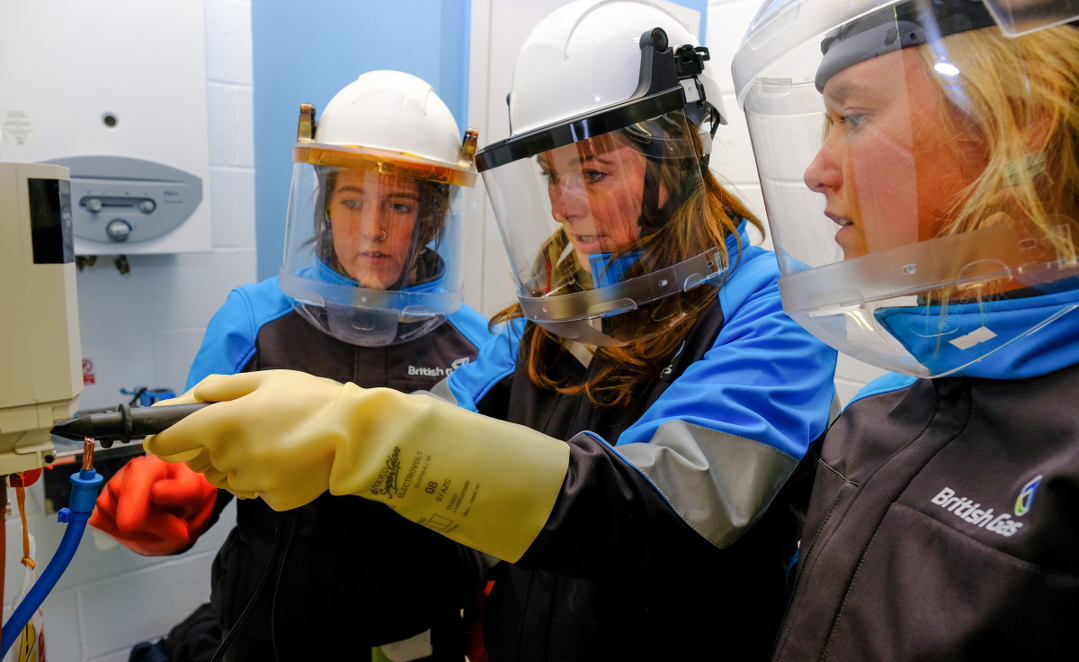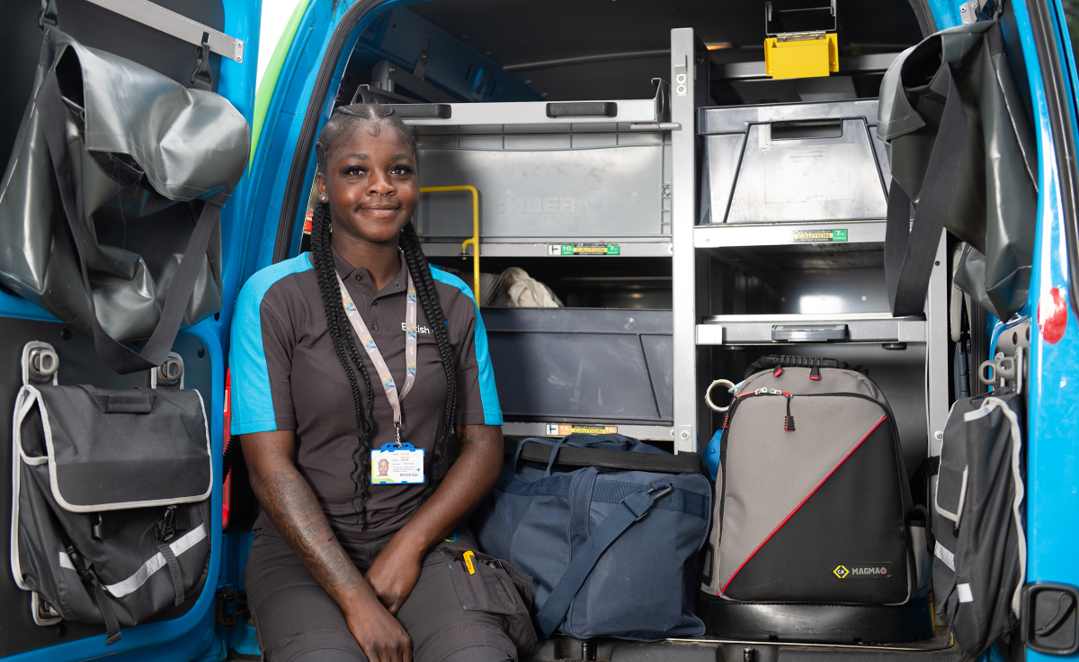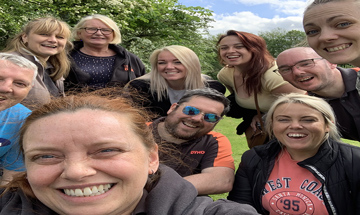How workplace programmes help boost teamwork, cement morale and retain talent
Being an inclusive workplace means different things to different people. But whatever the motivation, supporting the people behind the business should be a core component of any forward-thinking strategy: more than 35% of UK employees experienced work-related poor mental health in the past year.
If people are at their best physically and mentally, morale increases, commitment increases and they are well placed to make the right decisions, develop their careers and produce better business results.
Employee support programmes are a vital tool in creating a positive working environment for people throughout their career journey.
“Wellbeing should be part of our daily life, it encompasses everything – physical and mental health, both in and out of work,” says Centrica CEO Chris O’Shea. “Providing tools through our wellbeing programmes helps support colleagues when they need it and gives them the confidence to take action when required.”
Early Career Support

Support begins with the first step on the career ladder. Apprenticeships are more than a good way to attract new talent – they can help equip the next generation of technicians, managers and business leaders with the skills needed to support the clean energy transition and help the world achieve net-zero emissions.
Apprenticeship programmes are also an opportunity to change attitudes and create an environment that encourages diversity and inclusion, helping to close gender and skills gaps. Women make up less than a third of the workforce in science, technology, engineering and mathematics (STEM) roles.
Forward-thinking companies are increasingly making efforts to redress this gender imbalance. Centrica aims to recruit and train women to fill half of its 3,500 technical apprenticeships at British Gas over the coming decade to better reflect the wider community, for example.
"When I became a mum, I wanted to find a new career without shift work,” explains Chelsea Living, a Smart Energy Apprentice with British Gas. “The apprenticeship means I can earn a STEM qualification while being paid. It’s a juggle at times, but the flexibility allows me to provide for my family and makes me proud. I hope my son will grow up to see me as a woman that is confident in doing a role previously perceived to be represented by men."
Facilitating life’s changes

Alongside evolving attitudes, the way we interact at work is also changing. COVID-19 caused a seismic shift to homeworking, and those changes are here to stay for many. Inclusive workplaces need to be flexible enough to adapt to these changing circumstances.
"Being able to work flexibly is wonderful,” says British Gas Customer Service Agent Ferdousara Haque. “As a working mum, it’s good to know that I have a choice when it comes to deciding where I work from."
Despite the benefits of avoiding the daily commute, homeworking is not without its challenges. Mental health issues such as anxiety, depression and loneliness have increased throughout the pandemic, alongside incidents of domestic abuse. These trends underpin the importance of colleague programmes aimed at safeguarding physical and mental health.
"Domestic abuse isn't something that affects only women; it can affect everyone,” says Joanne Rose, Co-chair of Centrica Women’s Network. “Working in a company that plays an active role to support both customers and colleagues through our policies is important. If we can help just one person to get the support they need, that’s one fewer person living in fear."
More than two-thirds of companies taking part in the UK Chartered Institute of Personnel and Development’s Health and Wellbeing at Work 2021 survey rely on colleague assistance programmes to help manage mental health at work. Investing in the health and happiness of staff is good for morale and good for business performance. The alternative risks a staff exodus.
Championing wellbeing, diversity and inclusion is also part of the DNA at Vodafone Ireland, positioning the company as an employer of choice.
“A progressive workplace for me is about inclusion and fairness, where everyone feels they belong,” says Vodafone Ireland CEO Anne O’Leary. “It's about the wellbeing of the employee. It's about empowering our people, trusting them, creating the right culture and policies to ensure everyone can develop.”
Work in this area includes addressing – once taboo – topics like menopause. Companies such as Centrica have issued guidelines to raise awareness, encourage open discussion and help colleagues recognise signs, symptoms and ways to support women going through the menopause.
Other programmes include carer and fertility support to help people balance work and life commitments, and allow colleagues the time they need to adjust to major life changes, like becoming a parent or caring for a relative.
End of career flexibility
Adopting a flexible approach to changing life circumstances also allows older and more experienced people to continue working past retirement, while balancing caring commitments or taking things a little easier.
The number of people working past retirement age in the UK has doubled in the past 20 years, offering a rich pool of knowledge and experience for employers to tap into.
Apprenticeships with no upper age limit can help attract new recruits who are at the later stages of their career, and flexible retirement programmes can help retain skills and experience that can be passed onto younger team members.
“We don’t believe in ‘cliff-edge’ retirement,” says Ross Matthews, Centrica’s Director of Pensions. “Our flexible retirement policy supports a diverse and inclusive workforce. It helps us retain valuable experience within the business that may otherwise have left us, while giving colleagues towards the end of their career choices on how best to manage their own retirement needs. With an ageing population, we also believe as a large employer that we have an important role to play by extending the work lives of our valuable colleagues.”
Shifting attitudes

This inclusive attitude to colleagues, regardless of age, gender or any other factor, demonstrates the growing realisation among employers of the vital role employee programmes play in supporting the people behind a business.
Alongside the personal benefits of creating an inclusive working environment where staff are happy, healthy and committed, businesses also benefit through higher productivity, greater staff retention and strong staff morale. Inclusive workplaces that support their colleagues are helping those same colleagues support customers and the communities they operate in.
“Colleague-led networks provide a platform for us to learn from each other and drive the changes we need to make,” adds Chris O’Shea, Centrica CEO. “The journey never ends and it’s important that we continue to challenge our ways of working, our culture, to change things for the better.”


Case Study
Secure, Sustainable and Affordable: 2025 Policy Positions
Sustainability

Case Study
In conversation with... Jessica Taplin
Energy crisis

Case Study
Getting Technical: Why market reforms should span both the downstream and upstream electricity market
Customers and Communities

Blog
Chris O'Shea: we will give 10% of British Gas Energy profits away to help our customers
Energy crisis

Case Study
Volunteering at Centrica - supporting causes that matter
Customers and Communities

Blog
Chris O'Shea: helping our customers with increasing energy costs
Energy crisis

